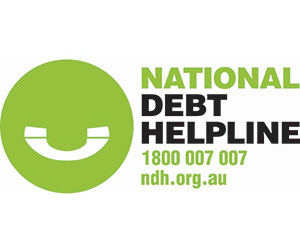The Play and Learn Support Resource
A story from this year’s annual report…
The Play and Learn Support (PALS) Resource was conceived as a vehicle for fostering conversations about child development pathways. Anglicare NT Remote Playgroups staff and other service providers working with remote Indigenous families and community members use it to initiate conversations about child development and to identify children who would benefit from early intervention.
Naomi Havens was engaged initially as an illustrator for the kit, but her studies as a paediatric occupational therapist combined with her experience living at Galiwin’ku on Elcho Island, and working as a health educator with Marthakal Homelands, provided her with the opportunity to learn about Aboriginal parenting styles and to further develop the resource.
Across the East Arnhem Communities for Children (EA C4C) communities, elders noted they were searching for ways to help their “children who were having children”. They recognised that young people at the start of their parenting journeys were increasingly facing challenges such as health problems, violence, instability and displacement, and many needed some extra support when they became caregivers to their own babies.
The new parents needed confidence to undertake their role as parents, plus information about child development and how they can have a positive impact in growing up their children.
The initial consultations for EA C4C highlighted the significance of shared activities as an opportunity to pass on traditional knowledge.
“A simple quote that struck me was “…the old people walk with the young people and we go hunting’,” says Naomi who went on to develop a powerful image of old and young walking together as part of the parenting resource.
A series of cards depicting East Arnhem flora and fauna, and a pictorial overview of childrens’ skills from birth to three years of age, was developed. The resource brings together the knowledge and experience of staff from several Anglicare NT programs including the PALS Team, Anglicare NT Remote Playgroups (Milingimbi, Ngukurr and Numbulwar), plus other early childhood health and education practitioners.
The cards can be used with individuals, groups or with families to spark discussions between elders and younger parents about their childhood memories and experiences of walking and hunting together. The PALS trainers and mentors facilitate discussion on stages of early childhood, provide information about brain development and neural pathways, and encourage discussion around caregiver’s memories of their own upbringing. All of this leads parents to recognise the significance of their own parenting, and motivation to give children the best possible start in life.
“The cards encourage caregivers to recognise their own strengths. They bring up childhood memories for the older people who pass their knowledge on. The older people teach the younger people the value of patience and self discipline,” says Mandy Manggurra. “You need to sit with some of these young parents and help them see that what they do with their young children is very important.” Mandy’s guiding encouragement to carers of young children is “The little things we do every day for our children become big things for them later on”.
Since its official launch in 2012, the value of this resource has been recognised by service providers in other areas of the NT and Australia. The kit has been adapted for the different regions with images of flora and fauna specific to that area.
Today, over 250 kits have been given out and the scheme is still going strong.
“One of the best moments for me was when a senior man expressed surprise that a Balanda [a non-Indigenous person] had used the traditional hunting concept so effectively to teach about parenting. He noted that using the concept of the land as a way of understanding our children’s needs and our responsibility to them is a very powerful image for Yolngu. He told me that as a Balanda I have used a concept I know only in part, but the significance of that image to Yolngu is much deeper than I could comprehend,” says Naomi. “The old man let me know that by using hunting as a metaphor, I had also included men and valued their traditional and ongoing role in parenting future generations. He could see his place in this story about caregiving and child development”.
The PALS resource was recognised by Anglicare Australia for excellence in its 2014 awards, and by NAPCAN (National Association for the Prevention of Child Abuse and Neglect) as an Outstanding Preventative Initiative in 2013. But the real rewards for the EA C4C team come from using it in practice.
“It was great to win an award but for me a far greater reward were the words of that old man. We can accept these national awards with confidence, because we have acknowledgement of its value from Yolngu elders, remote Aboriginal families and the caregivers of young children who the resource was designed to assist,” says Naomi.
